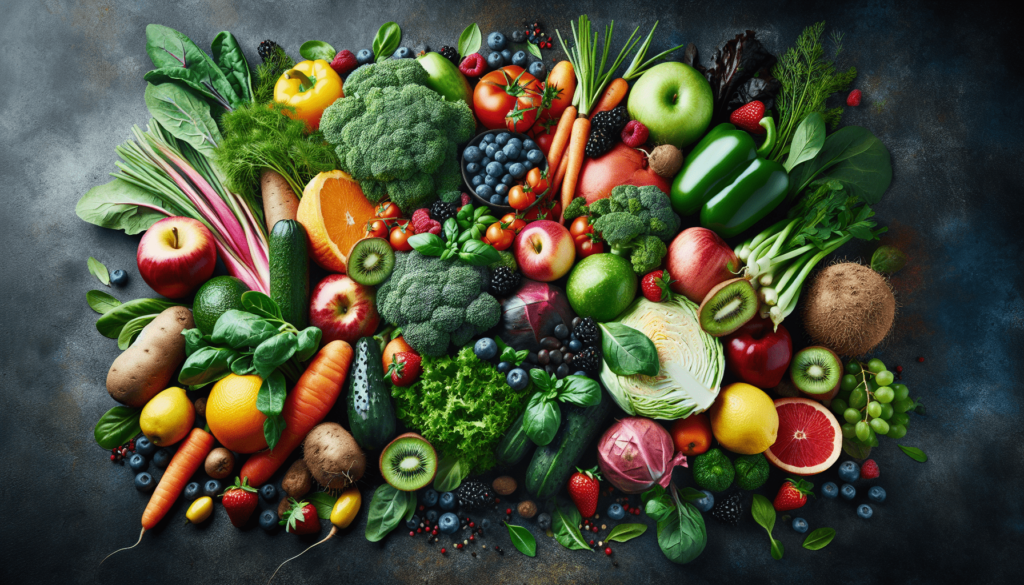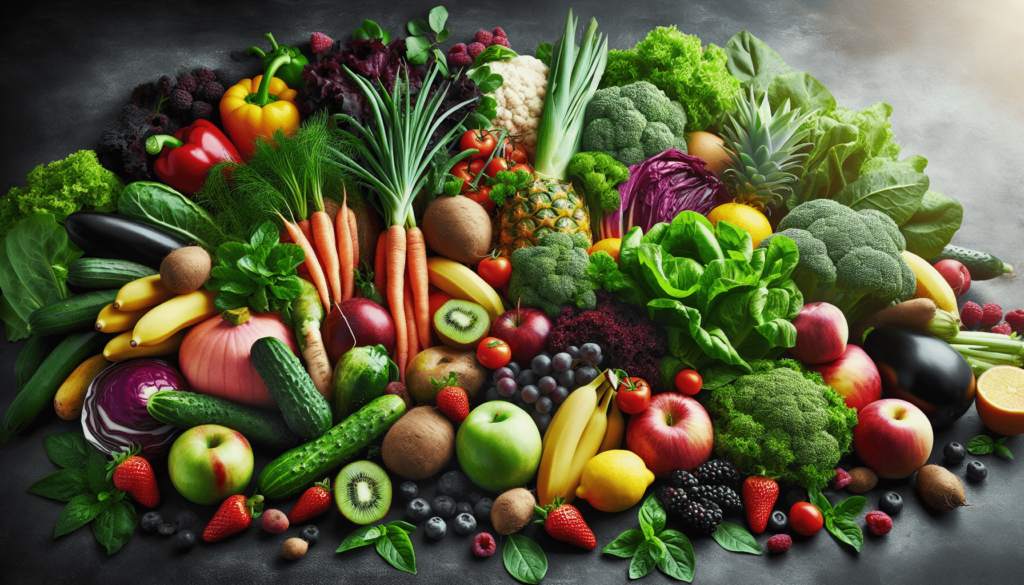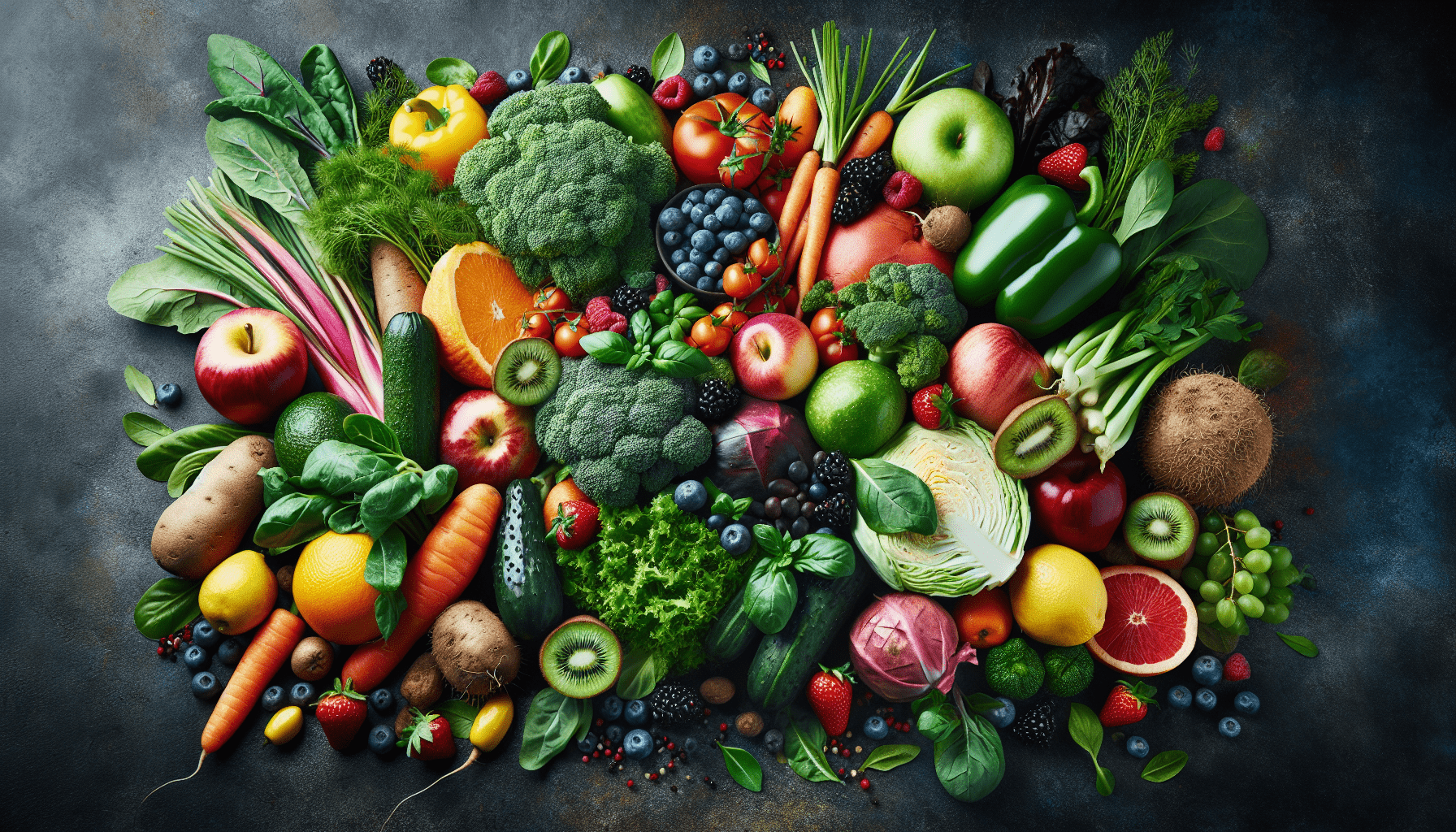Holistic Health Benefits Of Organic Food
Have you ever wondered why some people swear by organic food and its benefits? Let’s dive into the holistic health benefits of incorporating organic food into your diet and how it can positively impact your overall well-being.

Understanding Organic Food
Organic food refers to produce that is grown without synthetic pesticides, fertilizers, genetically modified organisms (GMOs), antibiotics, or hormones. In essence, organic farming aims to work in harmony with nature, preserving the soil’s health while producing food free of harmful additives. When you consume organic food, you can rest assured that you are nourishing your body with pure, chemical-free ingredients.
Richer in Nutrients
Organic food is known to be richer in essential nutrients compared to conventionally grown foods. This is because organic farming practices focus on nurturing the soil’s health, which in turn leads to more nutrient-dense fruits, vegetables, and grains. By choosing organic, you are ensuring that your body receives a higher concentration of vitamins, minerals, and antioxidants that are vital for optimal health.
No Harmful Chemical Residues
One of the main reasons people opt for organic food is to avoid consuming harmful chemical residues. Conventionally grown produce often contains pesticide residues, which can have detrimental effects on human health when ingested over time. Organic food is free of synthetic pesticides, herbicides, and fungicides, making it a safer and healthier choice for you and your family.
Better Taste and Flavor
Organic food is known for its superior taste and flavor compared to conventionally grown counterparts. This is because organic farmers focus on cultivating the soil’s natural fertility, allowing the crops to absorb essential nutrients that enhance their taste profile. When you choose organic fruits and vegetables, you can experience the true essence of each ingredient, making your meals more enjoyable and satisfying.

Improved Digestion and Gut Health
Organic food is easier on your digestive system due to its purity and lack of chemical additives. By consuming organic produce, you are providing your body with wholesome ingredients that promote better digestion and gut health. Organic fruits and vegetables contain beneficial fiber, enzymes, and probiotics that support a healthy gut microbiome, reducing the risk of digestive issues such as bloating, gas, and constipation.
Enhanced Immune Function
Organic food is a powerhouse of immune-boosting nutrients that help strengthen your body’s natural defense system. By eating organic, you are consuming foods that are rich in vitamins C, E, and A, as well as zinc, selenium, and other essential minerals that play a crucial role in immune function. Regularly incorporating organic fruits and vegetables into your diet can help reduce the risk of infections, allergies, and autoimmune conditions.
Lower Risk of Chronic Diseases
Numerous studies have shown that consuming organic food can lower the risk of developing chronic diseases such as heart disease, diabetes, and cancer. Organic produce is packed with antioxidants that help combat inflammation, oxidative stress, and free radical damage, all of which contribute to the development of chronic conditions. When you prioritize organic food in your diet, you are making a proactive choice to invest in your long-term health and well-being.
Sustainable Farming Practices
In addition to benefiting your personal health, choosing organic food also supports sustainable farming practices that are beneficial to the environment. Organic farming methods prioritize soil health, biodiversity, and water conservation, which are essential components of a healthy and resilient ecosystem. By supporting organic agriculture, you are contributing to the preservation of natural resources and the reduction of harmful environmental impacts caused by conventional farming practices.
Ethical Treatment of Animals
For those who consume organic meat, dairy, and eggs, choosing organic ensures that animals are raised in humane conditions and treated with respect. Organic livestock farmers are required to provide animals with access to pasture, fresh air, clean water, and a healthy diet free of hormones and antibiotics. By choosing organic animal products, you are supporting ethical animal husbandry practices and promoting the well-being of farm animals.
Budget-Friendly Options
Contrary to popular belief, organic food can be budget-friendly if you know where to shop and how to prioritize your purchases. Many grocery stores, farmers’ markets, and online retailers offer organic produce at competitive prices, especially during peak growing seasons. By planning your meals, buying in bulk, and opting for locally grown organic food, you can save money while still enjoying the holistic health benefits of organic eating.
Tips for Incorporating Organic Food Into Your Diet
Now that you understand the holistic health benefits of organic food, you may be wondering how to incorporate more organic options into your daily meals. Here are some practical tips to help you make the transition to an organic diet:
-
Start by prioritizing the “Dirty Dozen” fruits and vegetables that are known to contain the highest levels of pesticide residues. These include strawberries, spinach, kale, apples, grapes, and bell peppers. Opt for organic versions of these fruits and vegetables to minimize your exposure to harmful chemicals.
-
Buy organic pantry staples such as grains, legumes, nuts, and seeds in bulk to save money and ensure you always have nutritious ingredients on hand for cooking and baking.
-
Join a community-supported agriculture (CSA) program or sign up for a local organic produce delivery service to receive a weekly or monthly supply of fresh, seasonal fruits and vegetables straight from the farm.
-
Grow your own organic herbs, vegetables, and fruits in a backyard garden or on a sunny balcony to experience the joy of harvesting your own food and connecting with nature.
-
Experiment with plant-based organic recipes and discover new ways to prepare delicious and nutritious meals using organic ingredients such as quinoa, lentils, tofu, and seasonal produce.
By following these tips and gradually incorporating more organic food into your diet, you can experience the holistic health benefits of organic eating and support a sustainable food system that nourishes both your body and the planet.
Final Thoughts
In conclusion, the holistic health benefits of organic food are vast and encompass not only personal well-being but also environmental sustainability, ethical animal treatment, and budget-friendly options. By choosing organic produce, meat, dairy, and eggs, you are making a positive impact on your health, the planet, and the welfare of animals. Whether you are new to organic eating or a seasoned advocate, incorporating more organic food into your diet is a simple yet powerful way to enhance your overall quality of life. Enjoy the taste, nutrient density, and purity of organic food, and savor the health benefits that come with each delicious bite.

